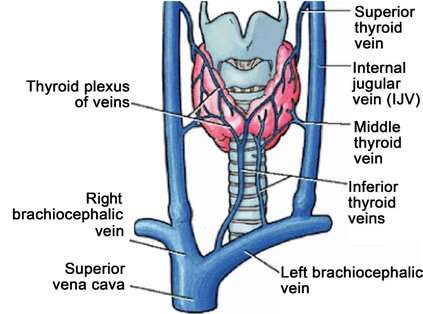Credit: Rodrigo Arrangoiz, Fernando Cordera, David Caba, Manuel Muñoz, Eduardo Moreno, Enrique Luque de León, CC BY 4.0,
Adequate thyroid hormone during pregnancy is very important for health of both pregnant persons and developing babies, especially in early pregnancy. Patients who are taking levothyroxine for hypothyroidism frequently need a higher dose of levothyroxine during pregnancy. However, it is unclear whether patients receive adequate counseling regarding this before pregnancy.
In the first study assessing the current practice of counseling of women of reproductive age with hypothyroidism from patients' perspectives, researchers have found that most currently pregnant or previously pregnant patients with hypothyroidism received counseling regarding the need for adequate thyroid hormone and were treated appropriately, consistent with the current professional societies' guidelines. However, only about one-third of women with hypothyroidism who had never been pregnant received counseling, which may indicate a gap in care.
Researchers sent out an anonymous online survey through the American Thyroid Association (ATA) to the Friends of the ATA newsletter subscribers. They collected responses from women 18-50 years of age with diagnosis of hypothyroidism. They then looked at proportions of patients who received counseling, types of treating clinicians, types of thyroid hormone prescribed for treatment of hypothyroidism and how hypothyroidism was managed during pregnancy.
"Our findings suggest that most currently and previously pregnant women received counseling regarding the thyroid hormone replacement therapy during pregnancy. However, approximately one-third of patients who answered the survey were treated by non-endocrinologists, who may be following a different guidelines than that put forth by the ATA, which is primarily professional society for endocrinologists," explained corresponding author Sun Y. Lee, MD, assistant professor of medicine at Boston University School of Medicine.
"People with hypothyroidism on thyroid hormone medication frequently need a higher dose of medication during pregnancy, and counseling of these patients prior to pregnancy is important. Our study highlights potential gaps in preconception counseling and treatment of people of the reproductive age with hypothyroidism, which can be further evaluated to improve health of pregnant people with hypothyroidism and their children," added Lee, who also is an endocrinologist at Boston Medical Center.
These findings appear online in the journal Thyroid.
More information: Alexandra L Solomon et al, Letter to the Editor: A Patient-Centered Survey-Based Assessment of Prenatal Management of Hypothyroidism for Women of Reproductive Age, Thyroid (2022). DOI: 10.1089/thy.2022.0032
Provided by Boston University School of Medicine























